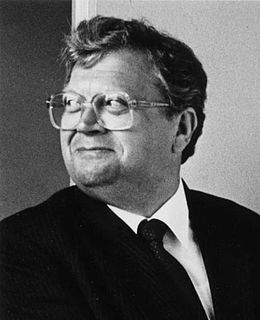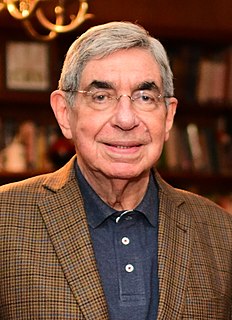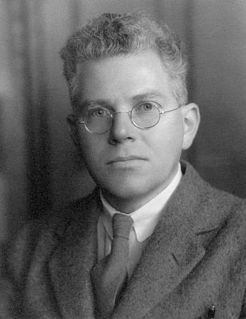A Quote by John F. Kennedy
Nuclear weapons are so destructive and ballistic missiles are so swift, that any substantially increased possibility of their use or any sudden change in their deployment may well be regarded as a definite threat to peace.
Related Quotes
Presidents should be very careful at all times in discussing the use or non-use of nuclear weapons. Presidents since the cold war have used nuclear deterrence to keep the peace, and I don't believe that any president should make any blanket statements with respect to the use or non-use of nuclear weapons.
What is the only provocation that could bring about the use of nuclear weapons? Nuclear weapons. What is the priority target for nuclear weapons? Nuclear weapons. What is the only established defense against nuclear weapons? Nuclear weapons. How do we prevent the use of nuclear weapons? By threatening to use nuclear weapons. And we can't get rid of nuclear weapons, because of nuclear weapons. The intransigence, it seems, is a function of the weapons themselves.
If you allow someone like Saddam Hussein to get nuclear weapons, ballistic missiles, chemical weapons, biological weapons, how many people is he going to kill with such weapons? He's already demonstrated a willingness to use these weapons. He poison-gassed his own people. He used poison gas and other weapons of mass destruction against his neighbors. This man has no compunction about killing lots and lots of people. So this is a way to save lives and to save the stability and peace of a region of the world that is important to the peace and security of the entire world.
The Kennedy Administration's public pronouncements on the matter suggested that the presence of Soviet nuclear missiles in Castro's Cuba would represent an unacceptable strategic threat to the United States. . . . This urgent transformation of Cuba into an important strategic base - by the presence of these large, long-range, and clearly offensive weapons of sudden mass-destruction - constitutes an explicit threat to the peace and security of all the Americas. . . .
I don't want to use the term "nuclear weapons" because those people in Iran who have authority say they are not building nuclear weapons. I make an appeal to the countries who do have nuclear weapons. They don't consider them a nuclear threat. But let's say a country that doesn't have nuclear weapons gets involved in building them, then they are told by those that already have nuclear weapons that they oppose [such a development]. Where is the justice in that?
The existence of nuclear weapons presents a clear and present danger to life on Earth. Nuclear arms cannot bolster the security of any nation because they represent a threat to the security of the human race. These incredibly destructive weapons are an affront to our common humanity, and the tens of billions of dollars that are dedicated to their development and maintenance should be used instead to alleviate human need and suffering
I, who had been in favour of nuclear energy for generating electricity ... I suddenly realised that anybody who has a nuclear reactor can extract the plutonium from the reactor and make nuclear weapons, so that a country which has a nuclear reactor can, at any moment that it wants to, become a nuclear weapons power. And I, right from the beginning, have been terribly worried by the existence of nuclear weapons and very much against their use.
With all of the history of war, and the human race's history unfortunately has been a good deal more war than peace, with nuclear weapons distributed all through the world, and available, and the strong reluctance of any people to accept defeat, I see the possibility in the 1970's of the President of the United States having to face a world in which 15 or 20 or 25 nations may have these weapons.
America has shown we are serious about removing the threat of weapons of mass destruction... We now know that Saddam Hussein had the capacity to produce weapons of mass destruction.... We know he had the necessary infrastructure because we found the labs and the dual-use facilities that could be used for these chemical and biological agents. We know that he was developing the delivery systems - ballistic missiles - that had been prohibited by the United Nations.
I think the danger right now is that without effective inspections, without effective monitoring, Iraq can in a very short period of time measured in months, reconstitute chemical and biological weapons, long-range ballistic missiles to deliver these weapons, and even certain aspects of their nuclear weaponization program.
My central arms control objective has been to reduce substantially and ultimately to eliminate nuclear weapons and rid the world of the nuclear threat. The prevention of the spread of nuclear explosives is to additional countries is an indispensable part of our efforts to meet this objective. I intend to continue my pursuit of this goal with untiring determination and a profound sense of personal commitment.






























